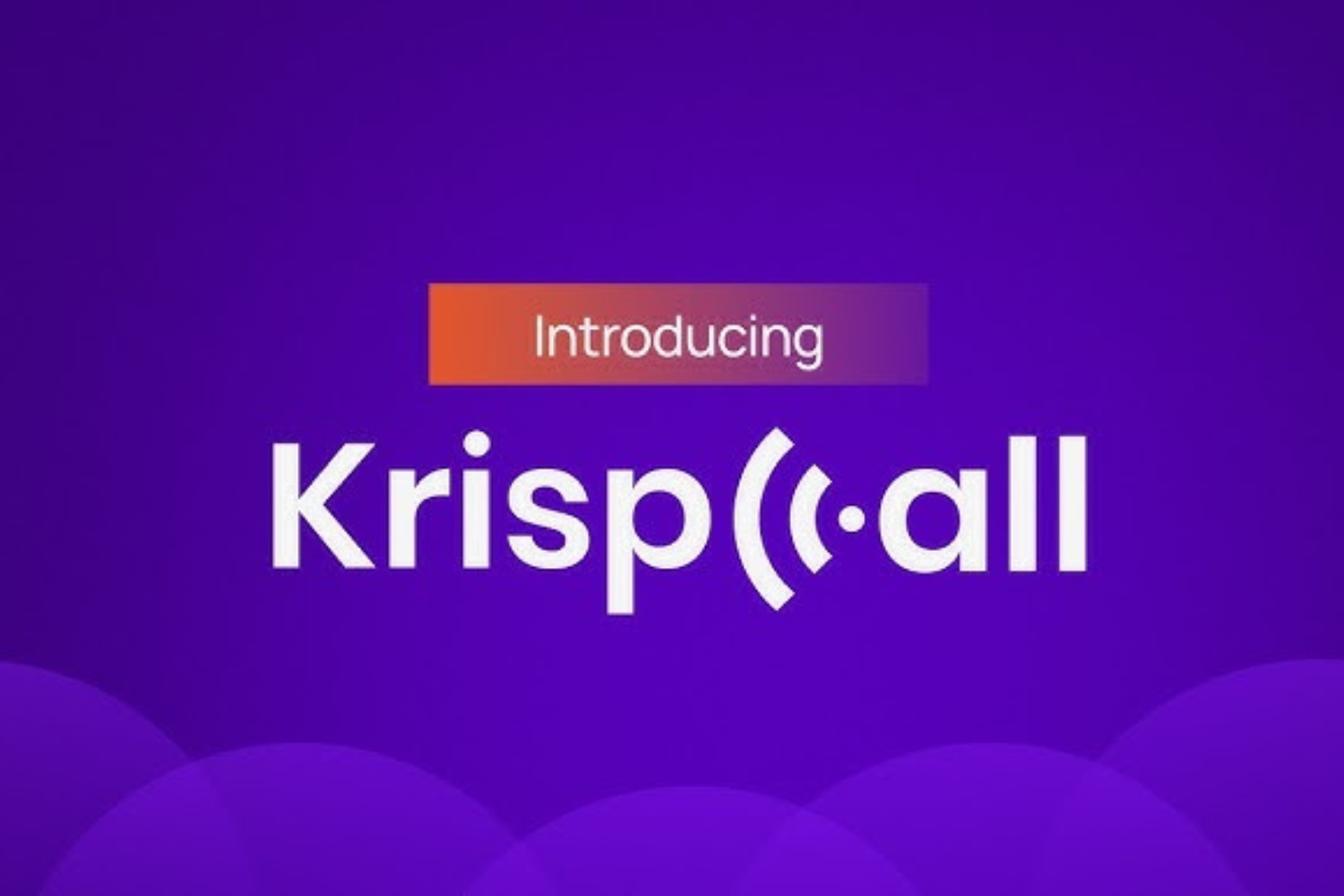With AI Writing becoming increasingly sophisticated, a growing debate exists about its efficacy in creating SEO-friendly creative content. In this digital age, businesses constantly look for ways to improve their online presence and reach a larger audience. SEO is the backbone of digital marketing content. Of course, Search Engine Optimization (SEO) is crucial in achieving this goal.
As a rule of thumb, it ensures that businesses appear at the top of search engine results and attract organic traffic. With technological advancements, AI writing has emerged as a potential tool for content creation. Be that as it may, it’s worth mentioning that AI is everywhere. Hundreds of AI-powered apps and tools promise speed, efficiency, and the key to unlocking at-scale content production.
Most AI content writers keep these promises. For marketers and content creators, AI-generated content is a substantial money-and time-saver. AI has minimal overhead, and many AI platforms offer subscriptions for less than $100/month. With the right prompt, AI can make a month’s content and images in a couple of hours, whether you need to create social posts, long-form blogs, or ads.
However, to ensure the content quality is as impressive as the speed, you must learn how to create good prompts. This is what differentiates the so-so writing tools from the all-stars. Furthermore, the best AI tools have good prompts and filters to help you create high value every time. But is using AI writing worth it for SEO? Let’s explore the pros and cons of making an informed decision.
Understanding What An AI Writing Process Entails In Strategic Content Creation
To enumerate, AI Writing is the process of using Artificial Intelligence (AI), Machine Learning (ML), and Natural Language Processing (NLP) algorithms to generate written content. By all means, these AI Writing Assistant Tools can produce anything from blog posts and articles to social media captions and product descriptions. Powering these types of writing assistants is artificial intelligence.
It’s important to realize that computer-assisted writing technology has come a long way from the first spell-check software. Today, some tools can check that your writing is on brand, uses the right tone, is easy to read, varies in vocabulary, and doesn’t include bias. And that’s just a short list of what’s available. AI can analyze large amounts of data to determine patterns and scan for correct usage.
As a result, this helps in saving writers and editors time and allowing them to catch errors. In addition, most content marketing specialists use AI writing assistants to ensure their creative copywriting is engaging and written in a consistent brand voice across platforms, including websites, blogs, and social media. In addition to editing, some AI writing tools help with SEO strategy.
Advances in deep learning (i.e., neural networks) meant that massive corpora of well-edited content could train a grammar model on what good grammar looks like—no complex rules necessary. Further advances in machine learning made setting up and deploying these models into products that were easy for users and became more accessible, too. AI should help people, not replace them.
AI Writing Pros:
- Increased Efficiency And Productivity: Eventually, AI Writing Tools can churn out vast amounts of content quickly, significantly increasing a company’s productivity. This speed is especially beneficial for businesses with high content demands.
- Improved Content Quality: AI writing has come a long way in quality. Modern AI algorithms can produce coherent and grammatically correct content, eliminating many previous concerns about readability.
- Targeted Keywords And Optimization: AI Writing Tools can seamlessly analyze SEO data and incorporate relevant keywords. This helps businesses create content that aligns with popular search queries, improving their chances of ranking higher in search engine results.
- Consistency In Tone And Style: Maintaining a consistent tone and style throughout the content is vital for brand identity. AI writing can ensure that all content pieces adhere to the desired brand voice, enhancing brand recognition.
Using the right AI Writing Tools, snippets allow you to easily insert chunks of brand messaging, such as a standard Call To Action (CTA) or value proposition message, into anything you’re writing.
AI Writing Cons:
- Inadequate Human Creativity: While AI writing can be efficient and accurate, it often lacks the creativity and emotional depth human writers bring. Engaging and thought-provoking content may suffer as a result.
- Insufficient Nuances Understanding: AI algorithms might struggle with subtle nuances and cultural references, leading to robotic or insensitive content.
- Risks In Duplicate Content: AI-generated content could inadvertently result in duplicate issues, negatively impacting SEO rankings.
- Potential Errors And Misinterpretations: AI algorithms are not foolproof and may misinterpret instructions, leading to inaccurate or irrelevant content.
In other words, like any new technology, the challenges of AI Writing and it’s tools come down to data and people. If you are a data scientist or machine learning engineer interested in the future of human communication, get in touch! On the data side, it’s how machines learn, of course. We’re obsessed with customer privacy and don’t use our customers’ data for training.
So, it does mean a constant effort to build datasets that we can use to build models. Fortunately, we foresee AI-powered technology continuing to help people at work and in their daily lives.
Some AI-Driven Technology Tools And Content Copywriting Best Practices
Artificial Intelligence (AI) Writing Tools are based on large language models (LLMs). LLMs are trained using self-supervised machine learning and natural language processing techniques on vast amounts of data. OpenAI’s ChatGPT-4, for instance, was introduced on 300 billion words for its content writing consumers. Once trained, artificial intelligence models are let loose.
Anyone can use them by inputting “prompts” (the same as you do with search engines to find keywords), and the AI tools generate responses and create content. Hence, the term Generative AI was introduced to the content writing marketplace. Whether you are a business owner, content writer, or a part of a marketing team, AI writing tools can boost your writing process.
At the same time, they help reduce repetitive, time-consuming writing tasks—like summarizing your latest campaign, crafting sales emails, or generating blog post ideas. Developing AI content writing tools can cost millions. Many AI content tools use open-source LLMs (language learning models) that are free for public use. An LLM is like a big language brain that powers AI software.
Striking a balance by combining AI Writing Tools and Human efforts is vital. The best approach to AI writing for SEO is to use it as an assistant rather than a replacement. By combining AI-generated content with human creativity and understanding, businesses can achieve the best of both worlds. Today, there are many AI content writing tools that you can try utilizing.
Including:
- Grammarly
- Quillbot
- TextCortex
- Writesonic
- AI Writing Assistant
- Paraphraser.io
- Anyword
- Scrivener
- Wordtune
- Writer
Always remember, when shopping around for a great AI content writing tool, the secret sauce is in the software, not necessarily the brain behind it. Look for an application or software tool that lets you “teach” AI, so it creates copy that meets your quality standards. Then, after that, try to see what other functions it offers, like keyword analysis, SEO improvements, or idea generators.
Several tools have built-in filters, prompts, or analyses to help you improve the text. Finding the best AI writers depends on the types of content you want to generate. Furthermore, one AI content writing tool that works great for certain types of content, like blog post outlines and planning, might not work as well as another tool for landing page website copy. Next, look at the pricing.
Many AI tools offer tiered plans, so find the pricing plan that matches your monthly output. To maximize the benefits of your AI writing strategy, there are a few best practices that you should consider.
Such as follows:
- Choose Reliable AI Tools: Invest in reputable AI writing tools with a proven accuracy and efficiency track record.
- Review And Edit Content Thoroughly: Review and edit AI-generated content to ensure it aligns with the brand’s voice and message.
- Monitor Keyword Density: While AI tools handle keyword optimization, ensure the content is not overly stuffed with keywords.
- Use AI As An Assistant, Not A Replacement: Emphasize human involvement in content creation, leveraging AI to complement human efforts.
As a rule of thumb, since the OpenAI ChatGPT introduction, marketers, small businesses, and content writers have sought help from AI content writing tools to make their workloads easier. But while ChatGPT has been used for numerous outputs. It can help in financial planning, nutritionist advice, AI social media posts, and other resourceful content, but it’s not the only tool in town.
You’ll find many AI content generator tools and application platforms with advanced features. They can help with blog writing, writing product descriptions, performing keyword research, and even evaluating existing content. It all can feel overwhelming if you’re unsure where to start. With that in mind, let’s explore how some businesses successfully integrate AI writing into their plans.
Some notable use case studies:
- Boosting Organic Website Traffic: Company A implemented AI writing for their blog posts, resulting in a 30% increase in organic traffic within three months.
- Multilingual Content Creation Support: Company B expanded its reach to international markets by using AI writing for translations, experiencing a significant uptick in global website visitors.
- Streamlining Content Creation Process: Company C employed AI writing to facilitate content creation for their e-commerce platform, allowing them to publish new product descriptions faster and attract more customers.
How The AI Writing Technology Future In SEO Content Audit Looks Like
At a time when Slack, Zoom, and the comments/chat fields of just about every B2B tool have quickly become the way we talk to our co-workers, sometimes we—and our thoughts and ideas—don’t come across as intended. In layman’s language, we must realize that more than ever, individuals and companies need more control and insight into what their creative professionals are writing.
One thing is for sure; now than ever, consumers are paying close attention to brands’ voices and messaging. Advances in AI and NLP mean there are now automated solutions for this. The future of communications at the workplace will include an automated double-check. That’s before you hit enter or click the button to send that what you’re about to communicate is what you want to say.
As mentioned, we often use AI technology mainly for editing—this helps ensure our website content is on-brand. At the same time, we use our latest and greatest messaging and write in a clear voice and tone that our readers will understand. With our new diversity, equity, and inclusion technology rollout, we’ll be even more confident that our language is inclusive by speaking to the target users.
That said, the future of AI writing in SEO is expected to be transformative and groundbreaking. As AI technologies advance, they are poised to play an increasingly crucial role in shaping how content is created, optimized, and ranked in search engine results.
Some critical future aspects:
- Natural Language Generation (NLG): AI-powered natural language generation will become even more sophisticated, allowing AI systems to produce high-quality, human-like content that is grammatically accurate and contextually relevant. This will enable businesses to create vast amounts of content quickly and efficiently, catering to specific user queries and preferences.
- Personalization and User Intent: AI algorithms will better understand user intent and preferences. AI-written content can be tailored to individual users, providing them with more personalized and relevant information. By addressing user needs more precisely, websites may experience increased user engagement and higher conversion rates.
- SEO-Optimized Content: AI will produce content and be capable of optimizing it for search engines. AI-driven tools will be able to analyze search trends, keyword usage, and other SEO factors to ensure that the content generated is well-optimized for improved search rankings.
- Content Variability and A/B Testing: AI will empower marketers to create multiple versions of content and automatically conduct A/B tests to determine the most effective variants. This iterative approach will lead to better-performing content and higher search engine visibility.
- Multilingual Content Creation: As AI language models become more proficient in different languages, they will facilitate the creation of high-quality content in multiple languages. This will allow businesses to reach a broader international audience and tap into new markets.
- Automated Content Updates: AI-powered systems will generate content and keep it up-to-date by scanning for trends, regulations, or industry standard changes. This will help maintain content relevance and authority, positively impacting search rankings.
- Voice Search Optimization: With the growing prevalence of voice-activated search devices and assistants, AI-powered content will be optimized for voice search queries, considering conversational language and long-tail keywords.
- Enhanced Content Curation: AI will aid content curation, aggregating relevant information from multiple sources to create comprehensive and insightful pieces. This will help establish websites as valuable resources in their respective industries, improving SEO rankings.
- Semantic Search Understanding: AI systems will be better equipped to comprehend the context and meaning behind search queries, enabling them to produce content that directly addresses user needs and intents.
- AI-Based SEO Strategies: AI will revolutionize content creation and help devise data-driven SEO strategies. AI algorithms will analyze vast amounts of data to identify trends, spot opportunities, and refine SEO tactics for maximum effectiveness.
- Medical Research and Clinical Trials: AI can analyze vast medical literature and clinical trial data to identify patterns and potential treatment options. This expedites research and aids in finding innovative solutions to medical challenges.
However, as AI writing in SEO advances, there will be challenges related to content originality, ethics, and potential biases in AI-generated content. Striking the right balance between AI assistance and human expertise will be essential for creating high-quality and trustworthy content in the future.
In Conclusion;
It’s interesting to think back to 2007 when Apple welcomed autocorrect to mobile OS. In the last decade, machine learning, natural language processing (NLP), and neural networks have made significant strides, allowing the next-generation writing assistants to be AI-based. Try to clone yourself! Creating a solid Styleguide is an essential first step in being able to use AI in your work.
If you don’t have a style guide or need to refine it, check out styleguide.com to create a styleguide from scratch or see examples of other organizations’ style guides. Writer allows you to incorporate your styleguide and quickly ensure all your content is one-brand, hitting the right tone. You can think of an AI Writer Tool as helping to scale your brain, or at least your copy editing process.
As a result, you can focus on creating original content. However, a good AI Writing Assistant goes beyond catching spelling and grammar mistakes. In addition, it helps identify wordiness and passive voice and helps ensure you stay on-brand and consistent with your messaging. It ensures that your writing is engaging and written in a consistent brand voice across various platforms.
In other words, AI Writing has undoubtedly revolutionized content creation, offering businesses efficiency and productivity benefits. However, it cannot fully replace human creativity and understanding. Striking the right balance between AI and human writing is crucial to achieving SEO success. So, what’s your take on this topic? Please share your thoughts in our comments.
Top Frequently Asked Questions Answered
1. Can AI replace human content writers entirely?
While AI automates content creation, human writers bring creativity and emotion to content that it struggles to replicate fully.
2. How does AI impact keyword research for SEO?
AI can analyze data to identify relevant keywords and optimize content for better search engine rankings.
3. Does AI writing ensure higher search engine rankings?
AI-optimized content can improve SEO rankings, but other factors also influence rankings.
4. What industries benefit most from using AI writing for SEO?
AI writing significantly benefits E-commerce, digital marketing agencies, and content-heavy websites.
5. Are there any potential risks of using AI-written content for SEO?
Risks include a lack of creativity, potential errors, and duplicate content issues that can impact SEO performance.




